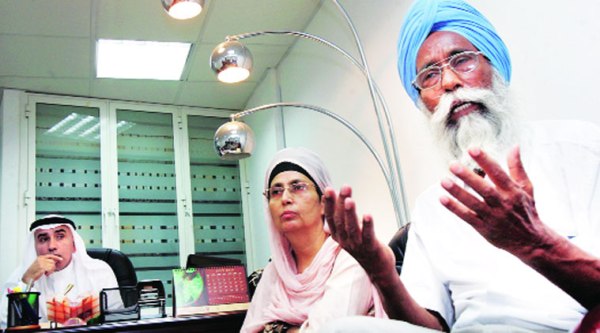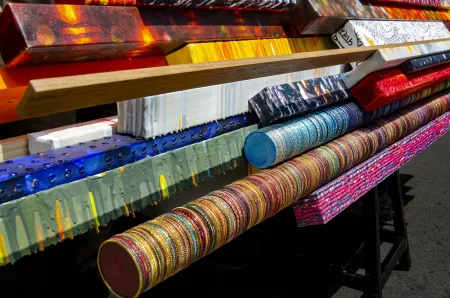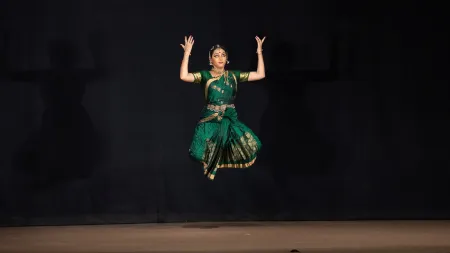- India
- International
To Hell and Back: Documentary on trial of 17 Indian workers on death row in UAE
Filmmaker Soniya Kirpalani documents the trial of 17 Indian workers on death row in the UAE and probes larger humanitarian issues facing migrant labour
 The defence attorney for the Indian embassy.
The defence attorney for the Indian embassy.
We owned these fields once. We even sold our last two acres to buy a visa so Dharampal could go abroad. Getting a job here would not have been possible, even after paying bribes,” says Ranjit Kaur, as she walks around fields in Ferozepur, Punjab. Several miles away in Jalandhar, an aged Piarelal tirelessly visits an unlicensed employment agency, hoping to get some news about his son Subhan. Piarelal had borrowed Rs 70,000 to send Subhan to the UAE.
The helplessness of the people captures the essence of 17 Not Required Indians, filmmaker Soniya Kirpalani’s documentary about the trial of 17 Indians who were sentenced to death by a Sharia court in Sharjah in 2010.
Dharampal and Subhan worked as construction labourers in the UAE, but found themselves on death row with 15 others, held for the murder of a Pakistani man. “When I heard the news of the sentencing in March 2010, I knew I had to do something,” says Kirpalani, “Though there are over two million Indians in the UAE, it felt like the lives of those 17 were of no value.”
The film follows the case, from their sentencing in 2010 to their return home in 2013, only after “blood money” was paid to the family of the deceased Pakistani man in exchange for pardon. Through it all, Kirpalani weaves a poignant tale of the state of labour camps in the UAE, the aspiration of Indians in a rush to seek overseas employment, and how politics and corruption exploit these people.
The film also clears notions of the real enemy in the case — the Indian embassy, and not the government. “Who will you approach if you are stranded in a foreign country? When I first started making the film, I was shocked to know how little the embassy was doing. No one from the consulate visited the accused after they were convicted. Even today, there are over 1,700 Indians languishing in UAE jails, and nearly 200 of them are on death row,” says the filmmaker, who was brought up in Mumbai and London, but has lived in Dubai for the past 30 years. Piarelal features prominently in the 71-minute English film, as he gets together with the other families and Kirpalani to find out more about the verdict and the flaws in the case.

While the the state-of-affairs at migrant labour camps are much written about, stealthily taking cameras into the camps and government offices was Kirpalani’s biggest and most risky challenge while making the film. “After I met Piarelal and Ranjit Kaur, I just couldn’t look away,” she says. She reveals she received threats and faced arrests at every stage of the filming. “These camps are in the outskirts of cities. Being the only woman in an all-male zone was a danger in itself,” she says.
The idea of blood money, approximately Rs 5 crore, was SP Singh’s idea. A Dubai-based hotelier, he led the campaign for collecting the money. However, as the film shows, the gesture was driven by Singh’s own political aspirations, much to the chagrin of the accused who did not want to plead guilty in the case. In February 2013, the 17 Indians were reunited with their families, but they returned home guilty for murder, prompting Kirpalani to question if it could indeed be called a victory.
The film, which was completed in June 2014, is set to screen at several international film festivals. For Kirpalani, however, 17 Not Required Indians will be an ongoing project, and she says she will “bang on every door until she creates change”, which includes raising awareness by putting up relevant links and material on the film’s website.
“My aim is to take it across the rest of India, and hold awareness workshops on how to go abroad, through legitimate employment agencies. I want to give people the ability to make a conscious choice. Let not all of us be ‘not required’,” she says.
shikha.kumar@expressindia.com
Apr 20: Latest News
- 01
- 02
- 03
- 04
- 05


































